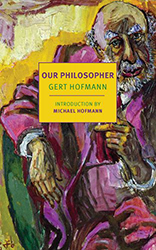The Beech Forest, this novel’s seemingly innocuous title, translates to Buchenwald in German. That word holds a lot of weight for Lisa Braun, a Canadian of German ancestry who is married to Gerhardt, a German immigrant whose family lives in the shadow of the former concentration camp. At the start of the book, set around twenty years ago, Lisa is visiting her in-laws in Germany. Feeling out of sorts, she gets lost in the beech forest and thinks about Hansel and Gretel, noting how “stoves and ovens seem to crop up often in German fairy tales.” She reflects on earlier, disquieting encounters with Gerhardt’s family: seeing a family photo album featuring an uncle in a Nazi uniform, say, or hearing a grandmother spout antisemitic sentiments. Back home in rural Saskatchewan, an SS overcoat that Gerhart picked up at a flea market serves as a literal manifestation of the “skeleton” in the closet.
When her best friend moves away and Gerhardt takes an extended job out of town, Lisa, whose children are overseas, begins to lose her sense of self. She feels adrift and alone, so unlike the younger, bolder version of herself, and questions her life choices. She decides to take on a volunteer gardening position at a senior community, where she develops a rapport with Ben, an erudite Jewish Buchenwald survivor. Perhaps sensing that she is a kindred spirit with a willing ear, Ben chooses Lisa to be the recipient of his story — the full, shocking details of which he has never shared with anyone. The deeper Lisa gets into Ben’s tale and her own online Holocaust research, the more she drinks and spends her nights maniacally cleaning her house like a conscience-plagued Lady Macbeth. In the process of his unburdening, Ben makes Lisa complicit in his disturbing final act.
This is the sixth novel by Canadian author Marlis Wesseler, who has painted a sensitive portrait of a middle-aged woman in crisis. Despite the generations of trauma and alienation that reverberate through both Lisa’s and Ben’s families, Wesseler seems to suggest that reconciliation and redemption are possible.
Lauren Gilbert is the Director of the Municipal Library of New York City. She was formerly the Director of Public Services at the Center for Jewish History.





